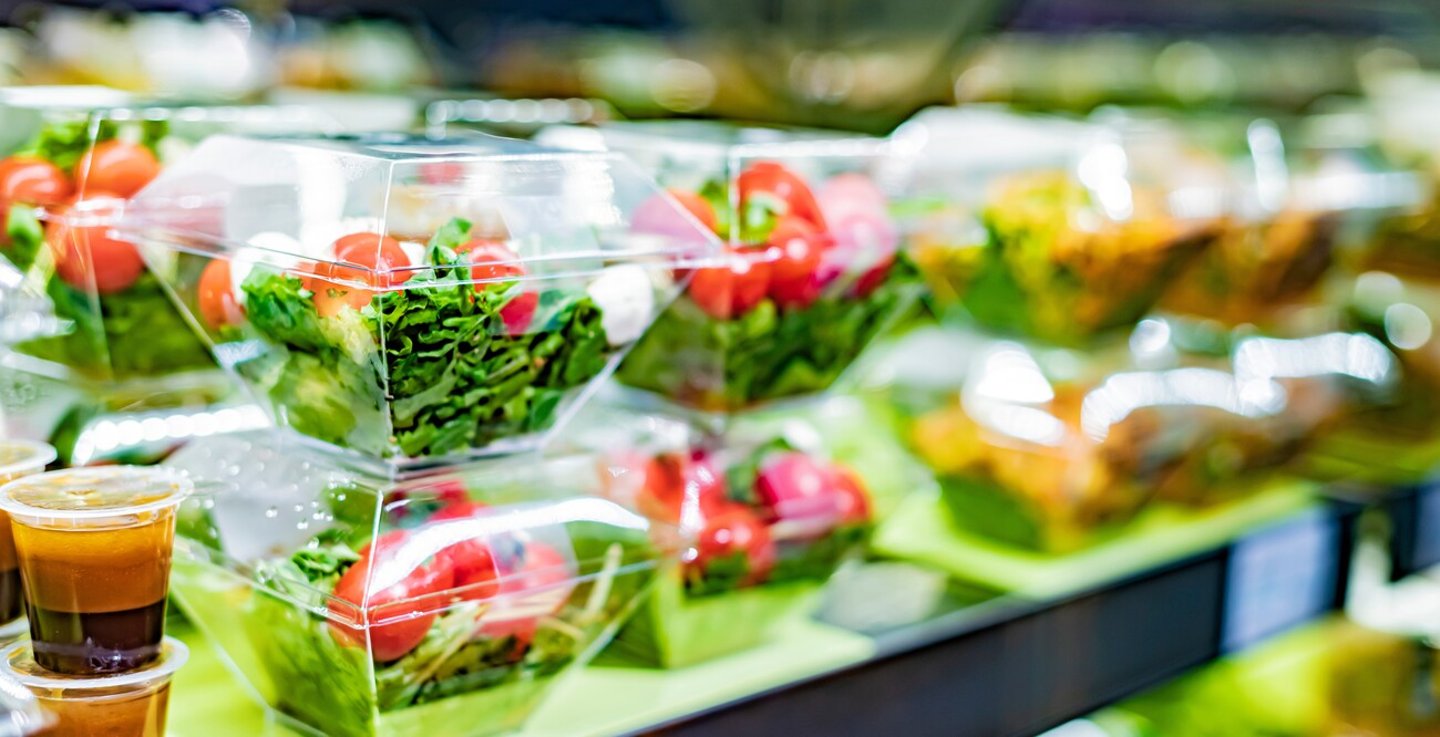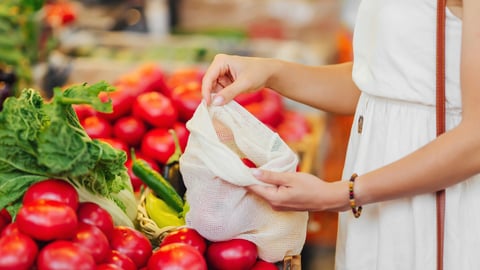Grocers raise concerns over proposed plastic food packaging guidelines
In a united front, Canada’s grocery chains have voiced concerns over a federal government proposal that would require them to develop and implement a plan for eliminating “unnecessary or problematic” plastic food packaging. Think juice boxes, produce bags, yogurt containers, meat trays and snack wrappers.
The Pollution Prevention Planning Notice (P2 Notice) takes aim at large grocery retailers, which the document defines as having annual sales of over $4 billion.
It sets targets for the sale of products within a reuse-refill system, products free of plastic packaging and/or concentrated products – 20% by 2026, 50% by 2030 and 60% by 2035.
As the notice stands, the percentage of fresh fruits and vegetables distributed and sold in bulk and/or plastic-free packaging would need to reach 75% by 2026 and 95% by 2028.
The big chains, including Loblaw and Metro, directed requests for comment to the Retail Council of Canada (RCC), which is representing them on the issue.
“Retail Council of Canada and its members are committed to achieving zero plastic waste,” says Michelle Wasylyshen, who provides strategic counsel for the RCC on government relations. “Grocers are working both independently, and through the Canada Plastics Pact, on key plastic reduction measures like eliminating problematic packaging and incorporating more recycled content.”
However, the council has raised objections with aspects of the proposed notice.
“Unfortunately, the federal government’s P2 Notice targets large grocers exclusively, which is impractical as Canadian retailers lack direct control and influence over the global supply chain,” says Wasylyshen.
In addition, she adds that “proposed measures such as selling produce in bulk or through reuse-refill systems could actually lead to increased costs to consumers and negative environmental impacts.” Her comments refer to research like the 2023 modelling from McKinsey that found, in Belgium, reuse takeaway systems in foodservice “can double the cost per use of container or cup.” McKinsey also found CO2 emissions would likely increase “by more than 150%” versus single-use packaging, owing to the higher share of fossil components in materials, transport and energy use. Rinsing and cleaning of reusable items would also increase water consumption.
The council has urged the government to delay and rethink the Pollution Prevention Planning notice.
“RCC maintains that more research is required to better understand financial, environmental, and health and safety implications before any policy measures should be considered,” says Wasylyshen. “In the meantime, we continue to encourage the government to invest in innovation and foster collaboration with all stakeholders to meet our plastic waste reduction objectives.”
While not addressing the proposed P2 Notice directly, Kristi Lalach, SVP, legal, sustainability and general counsel at Sobeys, says, “We are leaders in plastic waste reduction and circularity in our industry and our strategic approach to plastics and packaging is broadly aligned with Canada’s Action Plan on Zero Plastic Waste.”
READ: How Empire is getting aggressive with its climate strategy
She says Sobeys is “committed to eliminating plastic waste in our own brands.” In fiscal 2023, the grocer advanced plans to change 143 private-label products using unrecyclable black plastic, equalling about 106 tonnes, to packaging that supports a circular economy. It also began a pilot program for a compostable replacement for non-recyclable packaging for meat products, and forged collaborative partnerships with suppliers to address plastics and packaging, among other initiatives.
“We know there is much more work ahead, and we are proud of the path forward we have forged,” says Lalach.
Food, Health & Consumer Products of Canada (FHCP) provided feedback on the P2 Notice from the perspective of its manufacturer members.
“Grocers should be responsible for their private label brands and national brands should be responsible for their brands, but the federal government directed the pollution prevention plan just to grocers,” says Michelle Saunders, VP of sustainability at the FHCP. “Canada, to their credit, is trying to make significant headway on plastic, but it's really important for the government to recognize that the food industry is part of a global supply chain and the whole chain has to move together on this.”
“And so,” she adds, “we’ve had ongoing dialogue with the federal government to make clear on the commitment of food manufacturers and the CPG sector, writ large, to advancing the circular economy in Canada.”
READ: Grocery leaders share how they’re prioritizing their sustainability efforts
The government invited written feedback until Aug. 30 to the proposed P2 Notice and will continue to consult with stakeholders as it is developed. A draft of the notice is expected to be published for public comment later this year before being finalized.





